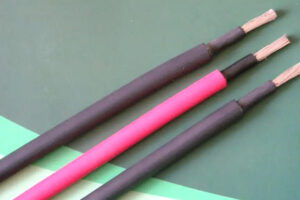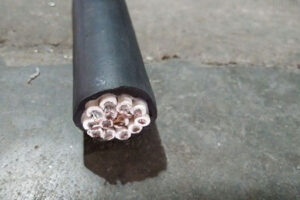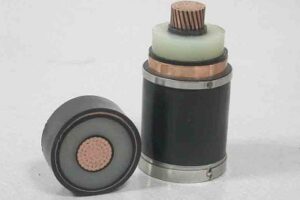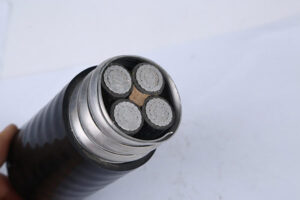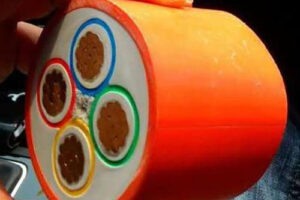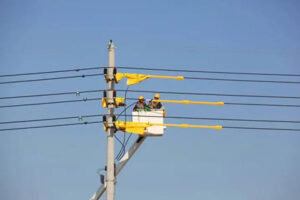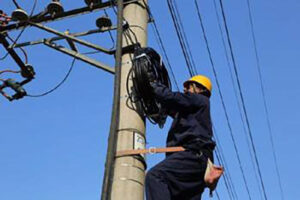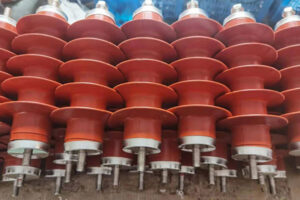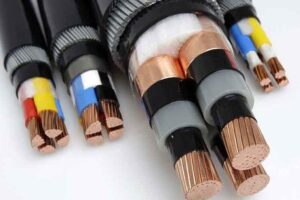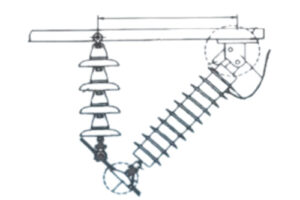Solar cables, also known as PV cables, are the solar system components for connecting the panels of the photovoltaic power system. Photovoltaic power generation is based on the principle of the photovoltaic effect. It uses solar cells to convert the energy from sunlight directly into electricity through solar cable. Photovoltaic power systems consist of three main components: solar panels, controllers and inverters.
Fiosrachadh
Ten Minutes To Get You Up To Speed On Types And Applications Of Marine Wire
There are various marine wire and cable classifications available on the Internet, but not all of them will meet your needs. Here is a short breakdown of marine cables that will give you what you need with relative ease, including P-type cables, dangling cables, and more. We’ll address the differences between marine cable and marine cable once and for all.
The Role and Difference of Metal Shielding of Medium-voltage Cable
In the power industry, 220 volts and 380 volts are considered to be low voltage, mainly for household electricity. 35,000 volts and above are high voltage, mainly used for power transmission. In between, it is medium voltage. And it is extremely dangerous to touch high-voltage power lines or to carry … Read more
Understand The Difference Between Armor Cable And Non-Armor Cable
1. Different concepts
Armor cable: It is installed by different material conductors in a metal sleeve with insulating materials, and is processed into a bending solid combination.
Non-armor cable: cables without armor protective layers, from several or several sets of wires in each group of at least two twisted cables, each set of wires insulated, often surrounds a center Twisted. The entire outer bread has a highly insulated coverage layer.
Development Of Environmentally Friendly Mineral Insulation Cables
Abstract: Introduce the materials and structures of environmentally friendly mineral insulation fire cables, through designing mineral fire prevention insulating layers, thermosetting polymer protective layers, inorganic fiber filler, low smoke halogen-free silicon porcelain insulation layer, metal armor fireproof layer, fire prevention layer, and metal armor fireproof layer. The composite refractory structure is composed of low -smoke halogen-free environmental protection external care layer, realizing the environmental protection of cable fire resistance and low toxic environmental protection performance, low toxicity, and fire-resistant cable.
Analysis of The Reasons for The Heat of The Pilot Line and The Method of Electrical Solution to The Heat of The Tension Resistance Pilot
The transmission line connection point is a major weak point of inline operation. In the operation of often heat burned, thus causing power outages. The analysis of the wire connection point heating problem, and timely adoption of appropriate preventive measures, will effectively avoid the wire connection point overheating. This causes the wire connection point to burn off the accident. Analyze the causes of wire connection point heating, and understand the theoretical basis for the temperature rise of high-voltage lines. At the same time, mastering the prevention and solution measures to deal with the connection point heating problem, to ensure the safe and reliable operation of the line has practical significance.
How To Set Up Overhead Fiber Optic Cable?
Fiber optic cable construction is roughly divided into the following steps: preparation → routing project → fiber optic cable laying → fiber optic cable splicing → project acceptance.
What is The Correct Procedure for The Installation of Zinc Oxide Surge Arresters? And What are its Advantages?
What Is The Correct Procedure For Installing Zinc Oxide Surge Arresters?
The zinc oxide arrester uses zinc oxide resistance as the main component, which greatly improves the voltammetric characteristics of the arrester and increases the through-current capability. When the arrester is in normal operation, the voltage flow through the arrester current is only microampere. When the overvoltage is received, the excellent non-linear characteristics of the arrester play a good role.
A lightning arrester is mainly used to protect electrical equipment from lightning intrusion overvoltage and operating overvoltage on its power equipment insulation damage.
What Type of Insulation Material to Choose for Wire and Cable in Different Environments?
The insulation material of wire and cable is an important structure to ensure the proper operation of the conductor. The operating life of the insulation material is an important indicator of the life of the cable. Usually, what are the insulation materials we use for wire and cable?
The Principle And Role Of A High-Voltage Line Arrester?
(1) The Role Of High-Voltage Line Arrester
High-voltage line arrester for 6 ~ 220kV AC transmission lines, is a new type of lightning arrester suspended and installed on the transmission tower.

